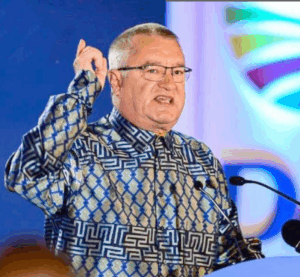The KwaZulu-Natal (KZN) Department of Human Settlements budget is, for many people in our province, a pivotal budget that stands between themselves and dignity. Across the length and breadth of KZN many people remain destitute and without the dignity promised in our Constitution under Section 26, which reminds us that: “Everyone has the right to have access to adequate housing” and furthermore “the state must take reasonable legislative and other measures, within its available resources, to achieve the progressive realisation of this right”. Unfortunately for many of KZN’s citizens, this right remains unfulfilled.
Understandably, targets have been decreased due to budget cuts – but even when the budget was sufficient targets were still not being met. Government cannot continue to do the same thing and expect different results, and it must be honest with itself and KZN’s people – what it has been done to date has not produced results. If anything, it has produced shoddily built homes, failed to maximise land use, given tenders to the politically connected and failed to hold contractors accountable for absconding from their targets and scope of work.
The DA welcomes the emphasis that the Draft White Paper for Human Settlements appears to place on public-private partnerships and a whole-of-society approach to solving our country’s housing problems. However, no private sector partnership must absolve government from playing an enabling role in ensuring affordable housing stock and spatial development.
The White Paper aligns closely with the DA’s own position paper on housing and urban development on several issues, including the focus on improving socio-economic circumstances through property ownership and the identification of challenges to housing provision. The economic reality of declining state capacity amidst rising demand has now made this approach inevitable. It means that in order to be effective in housing developments, the department must fund the development, seek collaboration with the private sector, facilitate capacity-building initiatives and render support to the province and municipalities. For the department to be effective in this mandate, it must set clear targets and be accountable to them.
The White Paper captures the extent to which “current housing policies and legislation is lacking in its endeavour to provide sustainable human settlements”. According to the 2022 Census, 88% of South Africans reside in formal dwellings, 8% in informal dwellings, and 8% in traditional dwellings. Unfortunately, those with lower incomes are experiencing increasing difficulty in accessing the property market due to current stringent lending regulations, the increased cost of living, rising interest rates and below-inflation salary increases, leading to less disposable income. Almost a quarter of South Africans rely on social grants as their main source of income.
Through the years there has been a steady decrease in the number of houses built, largely due to legislative shortcomings that have brought about economic decline. This, coupled with the impact of land invasions on housing provision, has continued to make the issue complex.
The White Paper aligns with the DA position that adequate housing provision should be measured against security of tenure, availability of services, materials, facilities and infrastructure, affordability, habitability, accessibility, location and cultural adequacy – and not just provision of housing units.
KZN’s Human Settlements department needs to design spatial solutions around the zoning of plots and not the number of dwellings on it, to better provide adequate services to sites. Land should be zoned for two or more dwellings and a small to medium home-based enterprise or a third dwelling because the DA believes that housing, the economy and livelihoods are intrinsically linked.
But, White Papers, policy and legislation changes, and the promises of alternative funding models mean nothing without the political will to effect real change and put our peoples’ needs first.
Over the years the DA has stated the obvious when it comes to the provision of housing. As part of the GPU, we will continue to advocate for better quality homes and the need for more the efficient allocation of resources to prevent corruption and mismanagement.
The reality is that for the past 30 years houses have been built to tick boxes and meet targets, for party political gain. Numerous oversight inspections by the DA have revealed that these houses are shoddily built, badly planned, have poor infrastructure and that no thought has been given to the layout and development of the area. There is no planning for the future.
Anyone would think that KZN’s Department of Human Settlements enjoyed lagging behind in providing services. That it enjoyed lagging in implementing innovative ideas on service delivery and that it had forgotten that houses need bulk infrastructure. This is also the result of departments that worked in silos and did not plan together or work towards using budgets effectively.
The Human Settlements budget is made up of taxpayers’ money. KZN’s new government of provincial unity (GPU) must develop and maintain infrastructure such as roads, sanitation, and electricity in newly established settlements. It must ensure that developments are sustainable and meet the needs of growing populations, while also being well-integrated into existing urban areas.
The reality is that budget cuts are not the reason for decreasing the targets. This department has never met its targets over the years.
As with every other KZN government department, Human Settlements must now take a whole-of-society approach. It is not rocket-science – a working, educated society is a self-sufficient society, able to provide and contribute to the economy. Human Settlements should include strategies to create opportunities and stimulate local economies.
The DA, as part of the GPU, will continue to stress the need for transparency and accountability in the management of Human Settlement projects to ensure that funds are used effectively and that projects meet their goals.
KZN’s Human Settlements also needs to start putting “Taking Legislature to the People” (TLTP) into words and conduct proper engagement with local communities in the planning and implementation of housing projects, to ensure that their needs are met.
To date, there have also been no tangible solutions to KZN’s housing crisis. There have been no solutions for the growing number of informal settlements. No solutions to people living in TRU’s, council flats problems or even the issuing of Title Deeds. There have been no solutions around maintenance for past and current housing, no solutions for dealing with defaulting contractors, no solutions to address the construction mafia crisis, no solutions aimed at dealing with so-called business forums and no solutions for departments and municipalities that don’t spend their grants.
This while the department has failed to perform well for the past three financial years amid an ever-growing housing backlog of more than one million and more than 1 000 informal settlements.
The digitisation of the housing list continues to be a problem in the 7th administration. The DA urges MEC Duma and his department to urgently prioritize this. With each passing moment this omission continues to strip the people of KZN of the dignity that they deserve.
Building houses is serious business – a home is personal. It is more than just a belonging. It is a legacy, it is memories, it is where families are made, and dreams are dreamt. KZN’s new GPU-led government needs to think out of the box, provide tangible solutions and take a hard line against corruption, maladministration, tenderpreneurs, wasteful expenditure and mismanagement.
The DA strongly believes that public housing options should make greater use of the energy and commitment of our poorer residents, rather than seeing them as passive recipients. Previous delivery has failed to lay a solid foundation for a more inclusive society. Instead, it has tended to trap the poor in new urban ghettos, far from work opportunities and with (limited) possession of decaying properties for which there is only the most limited market.
As part of the GPU, the DA envisages a future where we have overcome the spatial legacy of the past, where the urban poor live closer to work opportunities, where they regard their properties as the fruits of their own labour rather than gifts from the state, where amenities such as schools and clinics are readily accessible, and where communities are characterised by a mix of incomes and housing types.
The DA will encourage market-based solutions for housing provision in so-called ‘gap markets’ and for self-help initiatives. State resources can be freed up to service our most vulnerable. Differentiated housing lists will also allow government to meet the needs of specific beneficiary groups through the appropriate mix of fully subsidised housing, self-help initiatives, in-situ upgrades, site-and-service schemes and social housing. The use of flexible subsidies will allow users more choice in the way their housing needs are met.
In addition, we believe that progress in addressing the housing backlog can be far quicker if we allow the private sector more scope to become involved and if we develop innovative models for housing delivery and affordable integrated housing developments.
Every family in KZN should have a home. No-one should sleep rough. No household should live in informal dwellings. Every household must have access to water, electricity, and sanitation services. All homeowners must have title deeds so that they can leave their home to their children, use it to obtain a business loan or simply invest in home improvements.
It is a vision far from being realised but the DA will work with the MEC as part of the GPU to realise this vision. It can be achieved if government prioritises KZN’s people, understands that it is accountable to them and ensures that the budget it is entrusted with is spent responsibly.
Having a home to live in is the firm foundation that every family needs in order to thrive – to learn, work, play, build wealth and be part of a community. And, a well-housed nation is also the solid foundation on which to build a successful KZN. Enabling families to thrive, unlocks economic growth and job creation and enables more families to access homes and the benefits that come with home ownership. This is the virtuous cycle we need to establish.
This 7th administration must play its role in ensuring that KZN’s Department of Human Settlements fulfils its mandate. Projects must be delivered and citizens must be given fair opportunities to benefit. The department must further ensure that all three spheres of government are empowered to assist and facilitate beneficiaries, particularly first-time homeowners.
With the right appetite and political will, KZN’s Human Settlements portfolio committee can navigate this complex space in on behalf of the many people who long for housing opportunities.
With aligned policies in place, respect for the Constitution, sound collaboration with stakeholders, suppliers and contractors, KZN’s GPU can overcome many challenges and benefit those in need.
The department itself needs to adopt a zero tolerance for corruption and be steadfast in a common goal of facilitating Human Settlements through proper management and proper tracking indicators. The distribution of housing funds and budget allocations must follow the demand for housing opportunities – it can no longer be on the basis of political alignment.
In the end, every success achieved will be another victory for the 7th administration as a unit.








